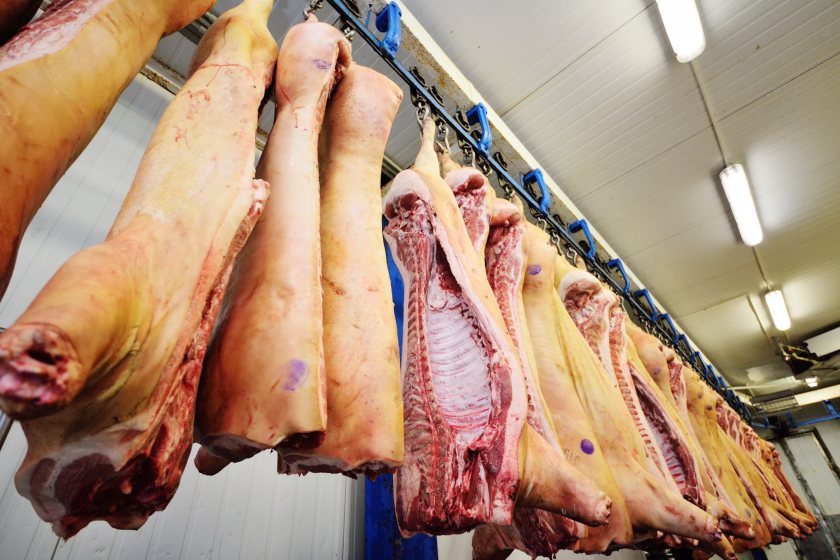
An industry group has called for the UK's meat inspection processes to be 'revolutionised' with the use of 'advanced, precise' artificial intelligence.
The Association of Independent Meat Suppliers (AIMS) made the suggestion after the government pledged to advance AI across public services.
Prime Minister Sir Keir Starmer said AI was the 'defining opportunity' of the generation, as he set out Labour's plans to use the technology to boost growth.
AIMS said the initiative presented a 'pivotal opportunity' to modernise meat inspection processes, in turn enhancing efficiency and accuracy within the industry.
It said the integration of AI-driven technologies could replace 'traditional, costly, and often inefficient' human veterinary inspections with 'advanced, precise, and reliable systems'.
Recent advancements in AI have demonstrated superior accuracy in detecting conditions on carcasses compared to human inspectors.
For instance, AI systems have been shown to identify defects with a higher degree of precision, reducing the margin of error inherent in manual inspections.
Dr Jason Aldiss, AIMS executive director, said AI could 'revolutionise' meat inspection protocols, ensuring consistent quality control while optimising operational efficiency.
He urged Food Standards Agency (FSA) and Food Standards Scotland (FSS) to consider the benefits of AI integration in meat inspection processes.
“By embracing AI, FSA can adopt more effective and efficient systems, reducing reliance on human inspectors and empowering food business operators to oversee quality assurance directly.
“Implementing AI-driven systems will not only enhance the accuracy and efficiency of inspections but also position the UK as a leader in adopting innovative technologies within the food industry”.
AIMS said it was committed to supporting the industry through this transition, advocating for policies that promote technological advancement and operational autonomy for food business operators.
